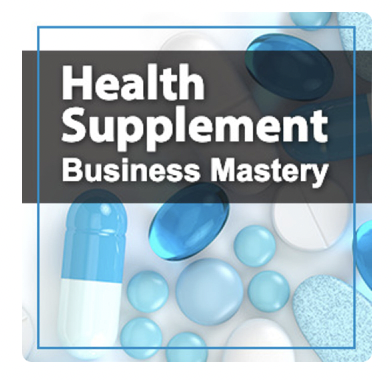Selling dietary supplements can be a lucrative business, but navigating the regulatory landscape surrounding their sale is essential for success.
FDA approval is not required to sell supplements. However, the FDA does regulate the supplement industry to ensure product safety and accurate labeling. Compliance with regulations and proper labeling guidelines is crucial for lawful supplement sales.
Whether you are already selling supplements or considering entering the market, understanding the intricacies of FDA regulations is crucial to avoiding potential legal pitfalls and protecting your business’s reputation.
There are certain claims you can and can’t make as a supplement business and that area is very gray. To learn more about supplement disclaimers and claims read my article about what’s allowed here.
Keep reading to learn about the FDA regulations regarding supplements.
To learn more about starting a supplement business read my comprehensive article on what you need to know.
Do You Need FDA Approval to Sell Supplements?
In general, FDA approval is not required to sell most dietary supplements in the United States. However, it is essential to understand the specific regulatory requirements imposed by the Food and Drug Administration (FDA) on the manufacturing, labeling, and marketing of supplements. While supplements are subject to FDA regulations, they follow a different regulatory framework than pharmaceutical drugs, reflecting the unique nature of these products.
The regulatory framework governing dietary supplements was primarily established by the Dietary Supplement Health and Education Act (DSHEA) of 1994. Under the DSHEA, supplement manufacturers bear the responsibility for ensuring the safety and proper labeling of their products. The FDA’s role is primarily focused on post-market surveillance, monitoring product safety, and taking action against non-compliant or unsafe supplements.
One of the key distinctions between dietary supplements and pharmaceutical drugs is the requirement for FDA pre-market approval. Unlike drugs, which typically undergo rigorous clinical trials and FDA review before they can be marketed, most dietary supplements are not subject to this pre-market approval process.
Instead, supplement manufacturers are expected to ensure the safety of their products and substantiate any claims they make about the product’s benefits.

However, it is important to note that there are situations where FDA pre-market approval may be necessary. This typically applies to dietary supplements containing new dietary ingredients (NDIs) that were not present in the market before October 15, 1994.
In such cases, the manufacturer must submit an NDI notification to the FDA, providing evidence of safety before marketing the product containing the new ingredient.
To ensure compliance with FDA regulations, supplement businesses must adhere to various requirements. This includes following Good Manufacturing Practices (GMPs), which encompass quality control, cleanliness, personnel training, documentation, and other manufacturing processes. Adhering to GMPs helps ensure the quality, purity, and consistency of supplements.
Accurate and compliant labeling is another crucial aspect of regulatory compliance. The FDA has specific guidelines regarding what information must be included on supplement labels.
This includes providing a Supplement Facts panel that lists the serving size, amounts of dietary ingredients, and other relevant information. Proper ingredient listing, allergen declarations, and required warning statements are also important elements of compliant labeling.
In addition to manufacturing and labeling requirements, supplement businesses have a responsibility to report any adverse events associated with their products to the FDA. This helps the FDA monitor the safety profile of supplements and take necessary actions to protect public health.
While FDA approval is not a prerequisite for selling most supplements, understanding and complying with FDA regulations are essential for several reasons. First, it ensures the safety and quality of supplement products, protecting consumers from potential harm.
Second, maintaining regulatory compliance helps build consumer trust and confidence in the industry.
Finally, non-compliance can lead to FDA enforcement actions such as warning letters, product recalls, or legal consequences, which can significantly impact a business’s reputation and financial stability.
To navigate the regulatory landscape effectively, it is advised for supplement businesses to consult with legal and regulatory experts who specialize in dietary supplement regulations. These professionals can provide guidance, help interpret complex requirements, and assist in developing strategies for maintaining compliance.
Overall, while FDA approval is not required for most dietary supplements, compliance with FDA regulations is vital for selling supplements responsibly and ensuring consumer safety.
What Can You Sell Without FDA Approval?

There are various products that can be sold without FDA approval. Here are some examples:
- Over-the-Counter (OTC) Drugs: Certain non-prescription drugs such as pain relievers, antacids, cough medicines, and topical creams can be sold without FDA approval. However, these products must still comply with FDA regulations, including labeling requirements and adherence to monographs (established standards) for specific drug categories.
- Cosmetics: Most cosmetics, including skincare products, makeup, hair care products, and fragrances can be sold without FDA approval. However, they must comply with FDA regulations related to labeling, ingredient safety, and proper manufacturing practices.
- Food Products: Conventional foods such as fruits, vegetables, grains, meats, and dairy products can generally be sold without FDA approval. However, the FDA regulates food safety and sets guidelines for labeling, nutrition information, and specific food claims. Certain specialized or novel food products may require FDA review and approval, such as food that has additives or novel ingredients not previously used in the food supply.
- Dietary Supplements: While FDA approval is not required to sell most dietary supplements, they are subject to FDA regulations. Supplement manufacturers are responsible for ensuring the safety and proper labeling of their products. Compliance with FDA’s Good Manufacturing Practices (GMPs) and accurate product labeling is essential for supplement sales.
- Traditional Herbal Remedies: Traditional herbal remedies and botanical products are generally not required to undergo FDA approval in order to be sold in the United States. However, they must comply with FDA regulations for safety, proper labeling, and claims made about their benefits. Certain herbal products may fall under the category of dietary supplements or be subject to additional regulations if marketed as drugs.
It’s important to note that while certain products may not require FDA approval, they are still subject to regulatory oversight to ensure consumer safety and accurate product information. Manufacturers and sellers of these products are responsible for complying with relevant FDA regulations, including labeling requirements, ingredient safety, and good manufacturing practices to maintain compliance with the law and protect consumers.
Overall, if you want to sell supplements, you don’t have to get FDA approval before you start doing so. However, you will have to follow FDA guidelines and regulations if you want to sell them long-term.
Discover the 3 funnels that can help your health supplement business succeed.

Listen to the Health Supplement Business Mastery Podcast for for dietary supplement entrepreneurs and marketers.




